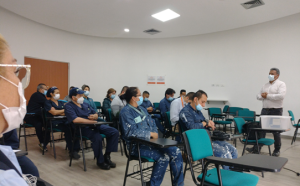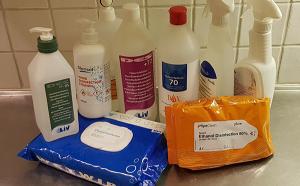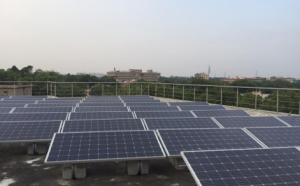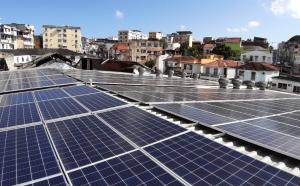Located in Luxor, Egypt, Shefaa Al-Orman Oncology Hospital (SOH) is a leading facility for cancer treatment in the country with 1,200 staff members and 150 beds. However, the hospital faced a significant challenge due to high energy consumption, leading to hefty operating costs and negative environmental impacts.
To address this issue, the hospital took proactive steps and implemented a sustainability strategy. They implemented several actions to reach their energy efficiency goals, that included using timers to control the operations of pans, scheduling the heating, ventilation, and air conditioning) systems, setting a standard temperature of 25 degrees for all air handling units, using photocell sensors for external lighting, and switching to LED lights.
The strategic implementation of energy-saving measures resulted in impressive outcomes. Between October 2022 and March 2023, energy consumption was reduced by 20%, which exceeded the initial target and resulted in saving over $20,000 in six months. Moreover, the hospital managed to reduce carbon dioxide emissions by 261.5 tonnes during the same period, aligning with their commitment to creating a greener and more sustainable future.
With the success of the sustainability strategy, Shefaa al-Orman Hospital now aims to take further steps. Ongoing monitoring and optimization of energy-saving measures are a priority, as well as exploring the integration of solar energy as a sustainable power source. Another key objective is setting more ambitious targets for energy reduction and carbon emissions. The hospital plans to share best practices and lessons learned with other hospitals, fostering knowledge sharing and inspiring similar projects.
Read the complete case study on Connect.
July 23, 2025
March 10, 2025
February 06, 2025
July 30, 2024
June 27, 2024
May 28, 2024
February 21, 2024
October 04, 2023
September 20, 2023
September 06, 2023
August 30, 2023
August 23, 2023
August 09, 2023
July 26, 2023
June 28, 2023
June 21, 2023
June 14, 2023
May 31, 2023
May 17, 2023
May 03, 2023
April 19, 2023
March 08, 2023
February 23, 2023
February 14, 2023
February 01, 2023
January 18, 2023
January 05, 2023
December 13, 2022
November 30, 2022
November 16, 2022
October 19, 2022
October 05, 2022
September 29, 2022
September 28, 2022
August 10, 2022
May 31, 2022
April 11, 2022
January 13, 2022
January 06, 2022
November 05, 2020
October 14, 2020







































